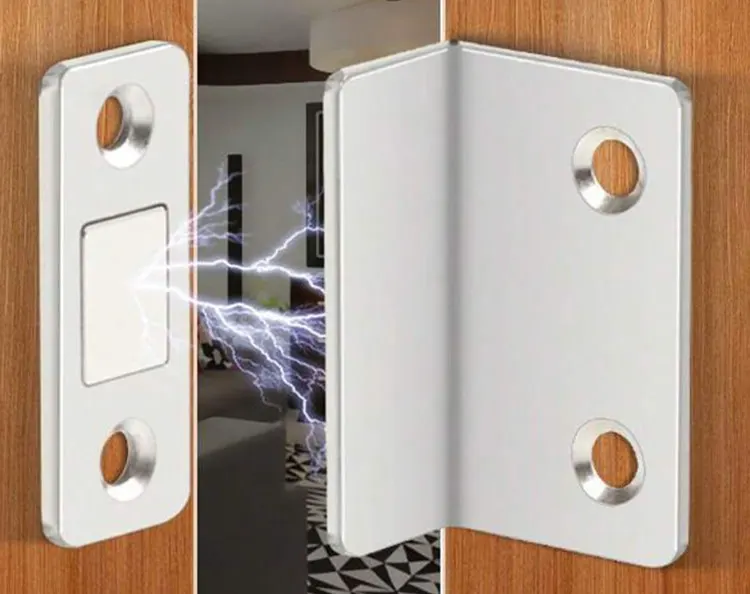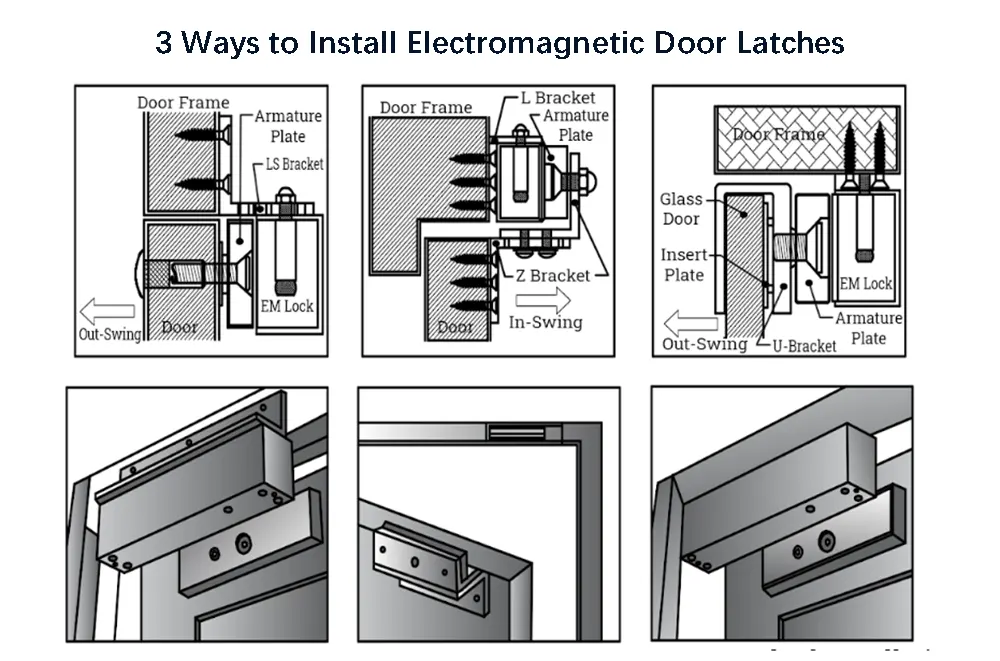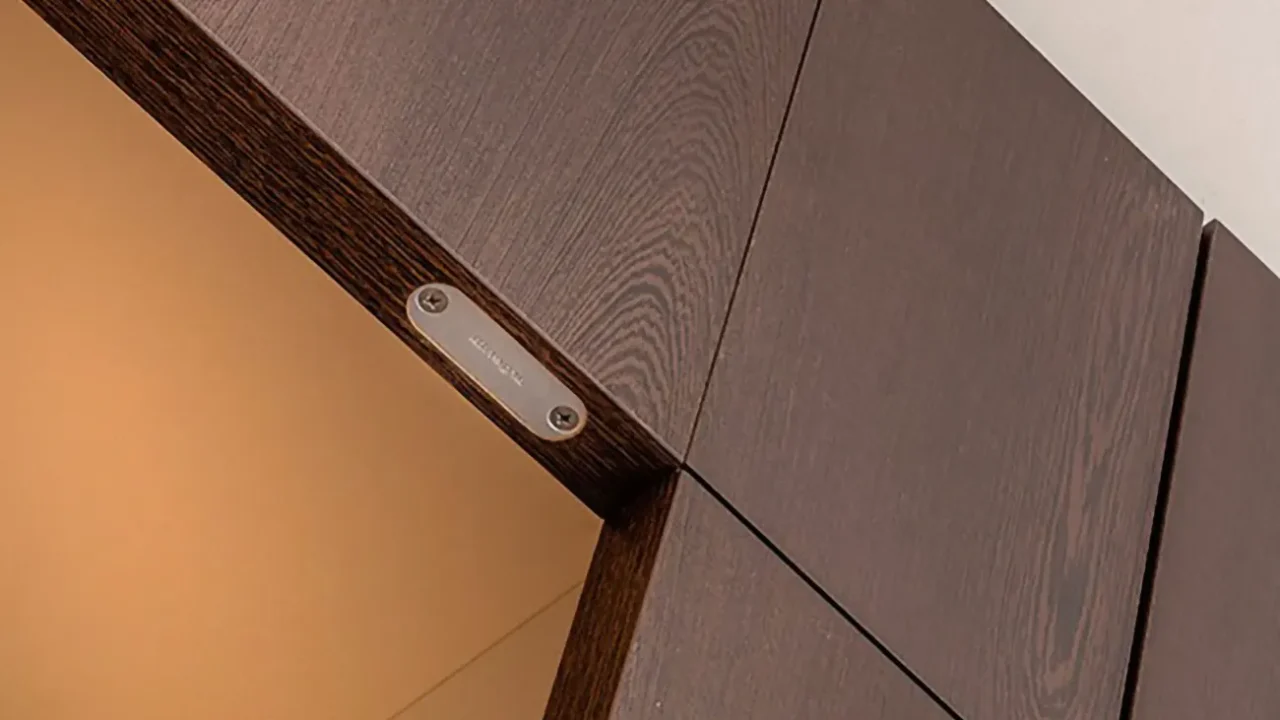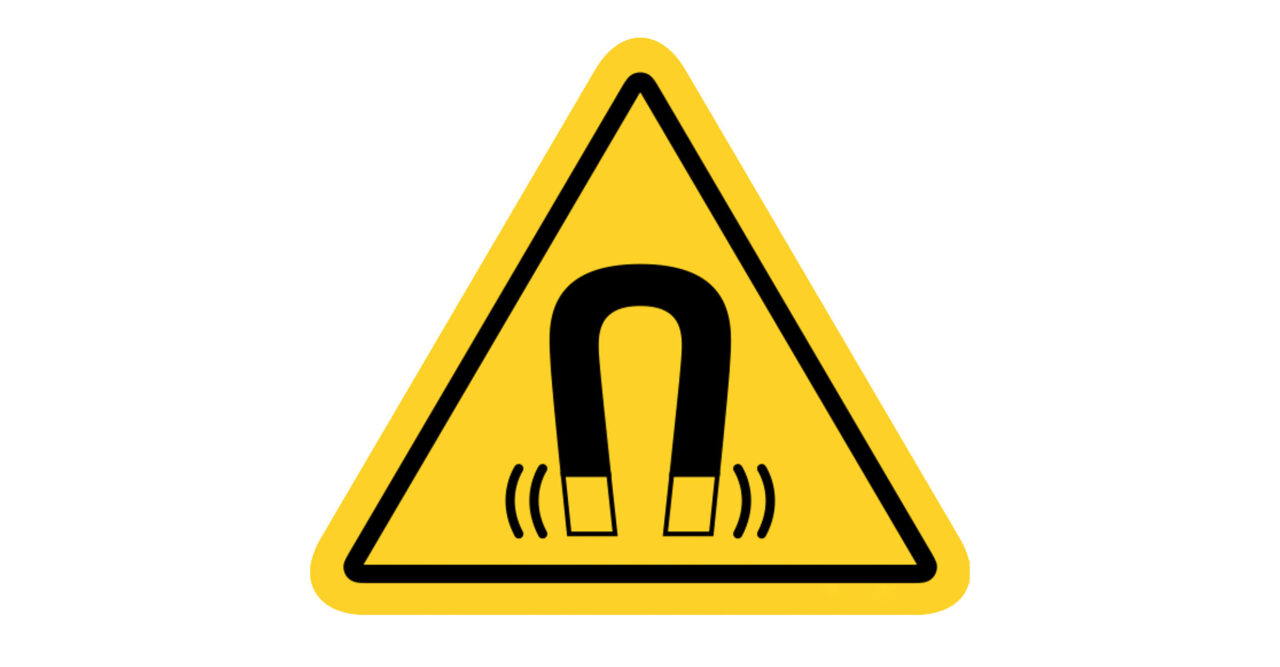Magnetic latches are convenient, reliable and a must-have for all types of door and cabinet switches, but as with any mechanical component, its lifespan will be greatly reduced without proper maintenance. Have you ever wondered how long a magnetic latch can last and what factors can affect its performance? Today you are lucky enough to be here, and I will answer all your questions for you. And tell you some tips for installing and maintaining magnetic latches.
How Long do Magnetic Latches Last?
When it comes to magnetic door latches, their lifespan can vary greatly based on a variety of factors. Generally, a properly maintained, high-quality magnetic latch will last anywhere from 5 to 15 years. The reason for such a large difference in life span is that actual use is not static. While the material and workmanship of the latch determine its maximum lifespan, how and where it is actually used will affect its lifespan to varying degrees.
For example, a magnetic latch used in a busy office may wear out faster than a magnetic latch in a cabinet that is rarely used at home. The same latch will have a shorter lifespan in a complex industrial workshop than in normal life.
External factors that affect magnetic latches.
- Humidity and moisture: Humidity in the environment is one of the biggest enemies of any metal, and magnetic latches are no exception. When magnetic latches are exposed to high humidity or direct contact with water for a long time, their internal magnets and metal structural parts will corrode over time.
If we know that the customer plans to use the magnetic latch in a high humidity environment, we will recommend that they choose stainless steel as the structural material and add a rust-resistant coating (such as nickel or rubber coating) to greatly extend its lifespan. - Extreme Temperatures: Temperature fluctuations can cause the magnetic and non-magnetic components of a door latch to expand and contract. Prolonged exposure to extremely high or low temperatures can weaken the magnets and degrade the performance of internal components.
- Chemical Exposure: In industrial or laboratory environments, strong acidic chemicals or spaces can corrode the surface of magnetic latches.
- Frequency of use: Magnetic latches used on high-traffic doors will wear out more than doors that are used infrequently. Frequent or hard use can accelerate latch wear and misalignment over time. In these cases, prioritizing the installation of heavy-duty magnetic latches is a wise choice.
- Proper Installation: Improper alignment during installation can cause excessive stress on the latch components, which can accelerate their damage.
To maximize the use of the magnetic latch and avoid frequent replacements later, consider the environment and usage conditions before purchasing. Investing in a high-quality magnetic latch upfront can often save you the trouble of frequent replacements later.
| Magnetic Latch Lifespan Comparison | |||
|---|---|---|---|
| Magnetic Latch Type | Typical Lifespan (Years) | Common Usage Scenarios | Key Factors Influencing Lifespan |
| Magnetic Push Door Latch | 5-10 | Cabinets, Closets, Lightweight Doors | Frequency of Use, Dust Accumulation |
| Electric Magnetic Door Latch | 8-15 | Commercial Doors, Security Systems | Power Supply Stability, Environmental Humidity |
| Surface-Mounted Magnetic Latch | 7-12 | Storage Units, Toolboxes | Exposure to Corrosion, Physical Impact |
| Concealed Magnetic Latch | 6-10 | Furniture, Hidden Panels | Installation Quality, Temperature Fluctuations |
| Heavy-Duty Magnetic Latch | 10-20 | Industrial Gates, Large Doors | Load Stress, Environmental Wear |
The typical service life and usage environment of magnetic latches must be considered during the early stages of purchase. If you still don’t know which magnetic latch to choose for your current needs, please check out our “Magnetic Latch Types and Selection Guide” to help you make an informed choice.
How Do I Maintain Magnetic Latches for Long-Term Use?
Since magnetic latches have a certain range of service life, proper maintenance during use can ensure that they remain reliable for their intended life. Don’t be afraid, maintenance is not complicated, and I am happy to share some simple and effective maintenance tips.

Use a soft, damp cloth to regularly wipe away accumulated dust and debris on the latch surface, and be careful to avoid using harsh chemicals or abrasive cleaners – they may damage the protective coating.
Regularly inspect the magnetic latch for obvious signs of wear or damage. Examples include corrosion on the housing, weakened magnets, loose screws, or misaligned components. Fix small problems in time to prevent bigger problems later.
If magnetic latches are used in humid or outdoor environments, make sure they have an appropriate protective coating, such as nickel plating or epoxy. For extra protection, it is recommended to periodically apply a protective sealant, wax coating, or lubricant to improve water and rust resistance.
Misalignment during installation or daily use of the magnetic latch will not only affect the normal magnetic attraction, but may even lead to deformation of the internal structure. Regularly check the engagement of the door latch and restore it to the correct tight state if it is loose or the screws are peeling off.
Each magnetic latch is designed early in life to have a rated load capacity range, beyond which limits the magnet and its components will deform. Be sure to choose a latch designed for a specific application based on actual needs.
I don’t know if you’re like me and keep a spare magnetic latch for future use. Please store it in a clean, dry environment away from high temperatures and strong magnetic fields to maintain its magnetic and structural integrity.
Regular and proactive inspection and maintenance ensures that the latch finds and solves small problems before they escalate. Whether it is cleaning, alignment, or proactive inspection, these small actions can significantly extend the life and reliability of magnetic door latches in the long run.
How Install Magnetic Door Latches?
Magnetic latches offer modern advantages over traditional door latches or lock and key mechanisms. Installing them is a simple, easy-to-use matter of drilling holes, mounting brackets, installing latches, and then testing. The premise is to understand the structural differences of different types of Magnetic Door Latches. I will not explain the specific magnetic latch type in detail here. Interested partners can go to our corresponding blog to read detailed information. Next, we will explain the installation of three types of magnetic latches with huge structural differences: electric magnetic latches, standard permanent magnetic latches, and simple latch magnets.
Installing electric magnetic door latches.

Electromagnetic force locks consist of two main components: the armature plate and the electromagnetic assembly. These two components are installed on the door frame and door so that their magnetic faces face each other. Magnetic locks are usually surface mounted on the secure side of the door. If the size of the electromagnet exceeds the available mounting space on the door frame or door, filler plates can be used to expand the mounting area. The power supply wire is connected to the lock along or through the wall. When the lock is powered, the electromagnetic mechanism is activated. The electromagnet mounted on the door frame and the armature plate on the door will stick together firmly, keeping the door locked. When the lock is triggered, the power is cut off and the door is unlocked.
For inward-opening doors, the electromagnet portion of the magnetic door latch is usually mounted vertically on the inner crossbar of the door frame. When the armature plate is in contact with the electromagnet, proper locking force is achieved.
In outward-opening doors, the electromagnet is usually fixed to the side of the door header. The armature is attached to a Z-shaped metal bracket that can be positioned and extended to align with the electromagnet.
Installation steps:
- Measure and mark the mounting position of the electromagnet and the attracted armature plate to avoid misalignment.
- Clean the mounting surface.
- Attach the electromagnetic device to the door frame with screws.
- Draw the prepared position on the door opposite to the electromagnetic device, and fix the latch armature plate on the door, making sure it is flush with the electromagnetic device.
- Connect the door latch to the power supply according to the wiring diagram of the electric magnetic door latch.
- Test the door opening and closing operation smoothly and ensure that the door latch can close the door firmly when powered.
Install the standard magnetic door latch.
Standard magnetic latches are what we most commonly see as cabinet latches, relying on the inherent attraction between permanent magnets and ferrous materials to provide convenience in lightweight switches. They are also made up of two parts: a neodymium magnet assembly and a metal plate. The simplicity of their construction has led to a variety of forms, including surface-mounted magnetic latches, hidden magnetic latches, and heavy-duty magnetic latches. Although the appearance styles are slightly different, their installation methods are the same: just measure the position and fix it with screws.
Installation guide:
- Determine the location of the latch on the door and frame. Mark these locations with a pencil to ensure accurate alignment.
- Use screws or adhesive to fix the permanent magnet assembly to the fixed position when the door is closed.
- Attach the metal strike plate to the door, ensuring that it is positioned to align correctly with the magnetic component when the door is closed.
- Open the door a few times to make sure the magnetic latch pulls the door into place. Adjust the metal plate position if necessary.
Install the latch magnet.
The latch magnet is a compact structure, a neodymium magnet or a small pot magnet and a metal plate. Ideal for light-duty applications such as cabinet doors or small access panels. The installation method is very simple, just like the standard magnetic door latch, it only needs to be positioned and fixed with screws.
How? Isn’t it very simple. Whether you’re upgrading your home or optimizing your commercial space, magnetic latches can improve the convenience of your life when installed correctly.
How to Replace Old Magnetic Door Latches?
With proper installation and routine maintenance, magnetic door latches can provide us with convenient opening and closing methods. But over time and the inevitable wear and tear of daily life, even the best door latch will fail one day. Perhaps it is no longer strong, or perhaps the magnetic core has been damaged, resulting in the inability to obtain safe and effective suction every time the door is closed. Having to be careful every time you open and close the door is not what we want. At this time, replacing a new magnetic door latch is a good idea to let us enjoy smooth operation again. Don’t worry, replacing a magnetic door latch is a simple process as long as you use the correct steps and tools.
Before you begin, gather the following tools:
- Screwdriver (flat head and Phillips screwdriver, depending on the type of door latch you have);
- Tape measure;
- Drill bit (if a new hole is needed);
- New magnetic door latch;
- Marker;
- Level (optional, but helps with precise alignment);
Once you have the tools ready, you can start replacing the magnetic door latch. Start by taking a closer look at the now-faulty magnetic door latch to see what caused it to need to be replaced: Weakened magnet? Or is there a problem with the shell structure? With a clear problem point, you can choose a magnetic latch in a targeted manner according to the cause in the future to avoid the same problem from happening again and again. Once we have a clear replacement goal in mind and plenty of tools in hand, we can start replacing the old door latch.
- Use a screwdriver to carefully remove the screws that hold the latch in place.
- Gently pull the latch away from the surface. If the latch is stuck due to old adhesive or wear, you can use a flat-head screwdriver to lift it up, taking care not to damage the door.
- After removing the old latch, inspect the surface for debris, adhesive residue, or damage. The area can be properly cleaned and sanded if necessary.
- Place the new latch where the old one was, using a level to ensure proper alignment.
- If the new latch doesn’t line up perfectly with the old screw holes, use a marker to mark where you need to drill new holes.
- Drill pilot holes for the screws.
- Secure the new latch with the screws, tightening them just enough to hold them securely. But don’t tighten too much to prevent the threads of the screw from slipping.
- Open and close the door a few times to check that the magnetic latch is properly aligned with the corresponding latch. If it’s not properly engaged, you can adjust the position slightly.
Replacing the old magnetic door latch allows us to regain the convenience we had before. But I still recommend that you regularly perform the magnetic door latch maintenance work we mentioned above so that you can obtain reliable performance in the long term.
Hope the above content can be helpful to you. When you know the factors that affect the lifespan of magnetic door locks, and properly install and regularly maintain it, you can avoid unnecessary replacements. If you are looking for bulk orders of magnetic door locks or customized services, Osencmag has always been there. Rich experience, complete quality control system can provide durable and economical magnetic latches for your business needs. Feel free to contact us for further assistance.
FAQs
Are magnetic cabinet latches a spark danger?
Magnetic cabinet latches do not create sparks. Its internal structure does not involve high pressure or flammable materials, and its working principle relies on magnetic fields, so there is no risk of sparks.
Are magnetic door latches good for earthquakes?
Magnetic latches secure doors without mechanical parts, making them suitable for use in earthquake-prone areas. However, they do not provide absolute protection, so if you are in an earthquake-prone area, you may need to take other precautions.
Why use water to clean magnetic door latches?
Clean water does not contain any corrosive or solvent-based substances and will not cause damage to the surface protective coating of the magnetic door latch. After all, our goal is to just remove dust from the surface, and water is enough.




